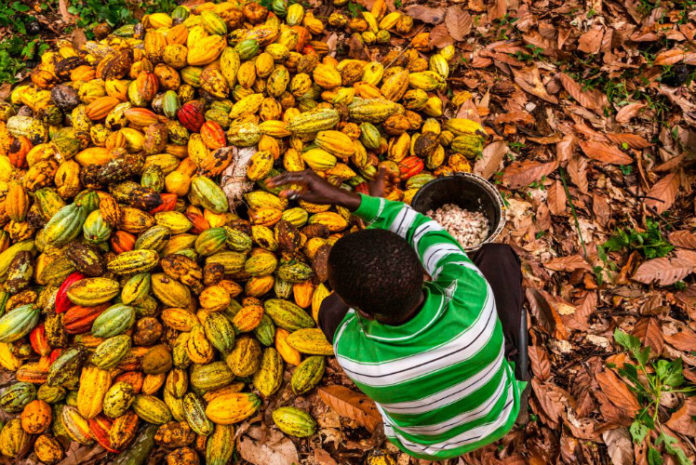Once the world’s leading cocoa producer, Ghana has seen its cocoa industry face significant challenges, culminating in a dramatic decline in recent years.
The country lost its premier position to neighboring Côte d’Ivoire in 1978, when cocoa production plummeted to 159,000 tons, capturing just 17% of the global market share.
Although Ghana’s cocoa sector showed signs of recovery in the late 1980s and early 1990s, with production steadily increasing to over 900,000 tons by 2010, the situation has deteriorated sharply over the past few years.
By 2021, the industry was a vital part of Ghana’s economy, contributing over GHS 3.1 billion, equivalent to $533 million, in revenue.
However, the 2022 crop season marked the beginning of a worrying decline, with production dropping from 1 million tons in the previous year to 683,000 tons—a staggering 32% decrease.
The downward trend continued in the 2022/23 season, with production falling to 654,000 tons, a further 4.2% reduction. Alarmingly, the 2023/24 season saw figures drop to 580,000 tons, an 11.3% decrease.
The severity of the situation was underscored in 2023 when Ghana had to import cocoa beans worth 185.2 million cedis from Côte d’Ivoire, highlighting the critical state of the nation’s cocoa production.
The primary driver of this crisis is illegal mining, known locally as “galamsey,” which has devastated large swathes of cocoa farmland. Over 19,000 hectares of cocoa farms have been lost to these illegal operations. Since 2020, cocoa farmers in Ghana have experienced an average 16% decline in their incomes, leading many to lease their farms to galamsey operators in search of more immediate financial relief.
Even though the government has increased the producer price of cocoa by 58.26%—from GH¢20,928 per tonne to GH¢33,120 per tonne—experts believe that more incentives are necessary to discourage farmers from abandoning their cocoa farms.
The situation is further exacerbated by rampant smuggling. In 2022, Ghana lost 150,000 metric tonnes of cocoa beans to neighboring countries through smuggling, resulting in an estimated $600 million in lost revenue.
As the 2024 elections approach, there is growing concern about the future of Ghana’s cocoa industry. Despite the severity of the crisis, major political parties have yet to present a detailed plan to address these pressing challenges. While some promises have been made, a comprehensive strategy to revive the sector remains elusive.
The future of Ghana’s cocoa industry now hangs in the balance. With further declines projected, urgent and decisive action is needed to address the critical issues plaguing the sector.
The choices made today, and the policies implemented by the next administration, will determine whether Ghana’s cocoa industry can recover or continue its alarming decline.
The nation’s pride in its cocoa legacy depends on the decisions and actions taken in the coming years, and only time will tell if the industry can be saved.








